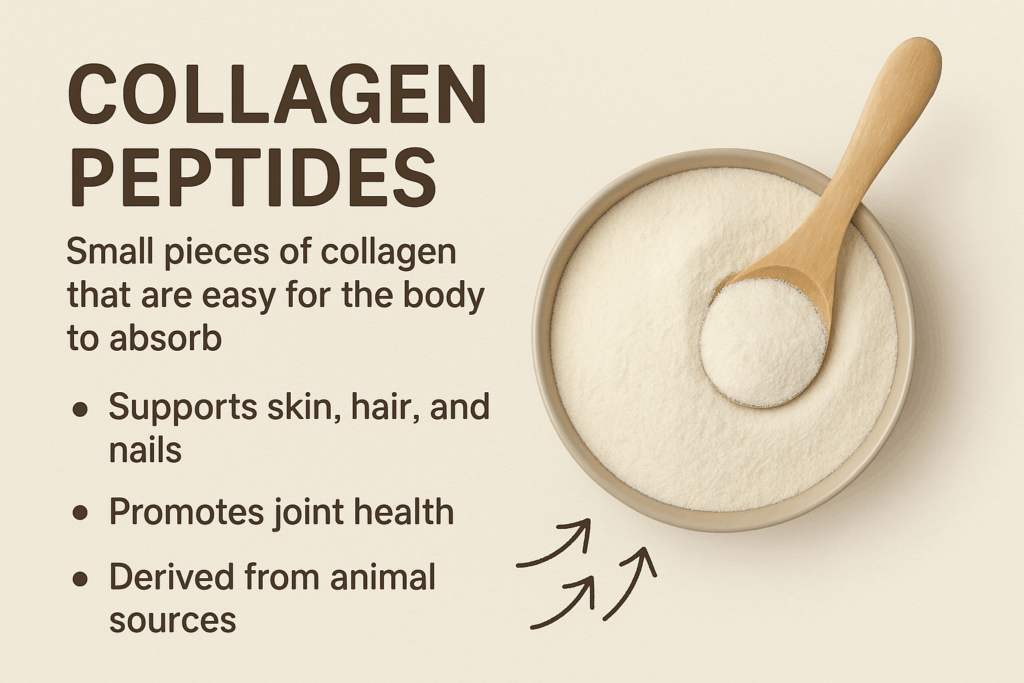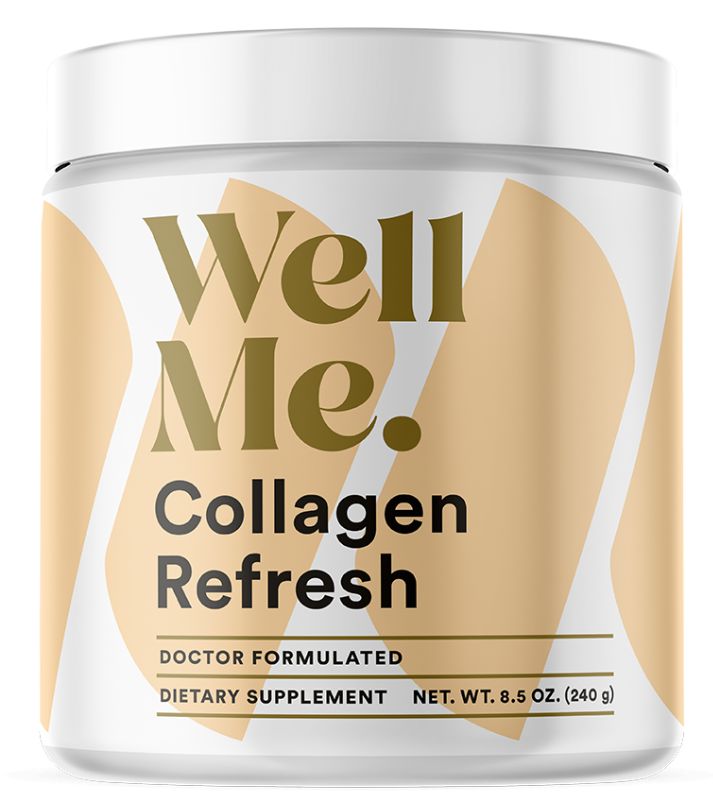
Collagen, the body’s most abundant protein, is a structural powerhouse found in skin, bones, muscles, tendons, ligaments, and even blood vessels. As we age, our natural collagen production declines, which is why supplementation and dietary sources have become increasingly popular. Let’s explore the 10 most compelling, research-supported benefits of collagen—plus some emerging insights.
1. Enhances Skin Health and Youthfulness
Collagen is the scaffolding of your skin, providing strength, elasticity, and hydration. Clinical trials show that daily collagen supplementation can:
Reduce wrinkles and fine lines
Improve skin elasticity and firmness
Boost hydration and smoothness
Collagen peptides stimulate your body’s own collagen and elastin production, potentially slowing visible signs of aging. Some studies also suggest a reduction in cellulite visibility, likely due to improved skin structure.
You may also be interested in boosting your testosterone, energy & wellness.
2. Supports Joint Health and Reduces Joint Pain
Collagen helps maintain the integrity of cartilage, the tissue that protects your joints. Research in people with osteoarthritis and athletes indicates that collagen supplements can:
Reduce joint pain and stiffness
Improve joint mobility and function
Lower inflammation markers
Collagen may accumulate in cartilage, supporting repair and reducing the risk of degenerative joint disorders.
For a perfect Collagen Peptides experience, click on the product hereafter:
3. Promotes Bone Strength and Prevents Bone Loss
Bones are composed of about one-third collagen, which gives them flexibility and strength. As we age, declining collagen can lead to osteoporosis. Studies have found that collagen supplementation:
Increases bone mineral density (BMD)
Reduces bone breakdown
May lower fracture risk
Combined with calcium and vitamin D, collagen appears especially beneficial for postmenopausal women.
You can win the battle over osteoporosis. Find out more here.
4. Boosts Muscle Mass and Strength
Collagen is a key component of muscle tissue. In older adults, collagen supplementation—especially when paired with resistance training—can:
Increase muscle mass and strength
Improve body composition
Support muscle repair after exercise
This makes collagen particularly valuable for combating age-related muscle loss (sarcopenia).
You can on muscle mass and get ripped with Isometrics!
5. Promotes Heart and Vascular Health
Collagen provides structure to arteries and blood vessels. Insufficient collagen can lead to arterial stiffness, a risk factor for heart disease. Early research suggests collagen may:
Improve arterial flexibility
Lower arterial stiffness
Increase HDL (“good”) cholesterol
This may reduce the risk of atherosclerosis, heart attack, and stroke, though more robust studies are needed.
6. Strengthens Hair and Nails
Many users report stronger, faster-growing nails and reduced brittleness with collagen supplementation. Early studies and anecdotal evidence suggest collagen can:
Increase nail growth rate
Reduce nail breakage
Support hair follicle health and thickness
While more research is needed, the results are promising for those seeking healthier hair and nails.
7. Supports Gut Health and Integrity
Collagen contains amino acids like glycine and glutamine, which are crucial for maintaining the gut lining. While large clinical trials are lacking, some evidence and practitioner experience suggest collagen may:
Support gut barrier function
Aid in healing “leaky gut” (intestinal permeability)
Reduce inflammation in the digestive tract
This makes collagen a popular supplement among those with digestive issues.
8. May Aid in Weight Management and Metabolism
Collagen is a satiating protein, which may help regulate appetite and support weight management. Some preliminary research and user reports suggest that collagen:
Promotes feelings of fullness
May support lean muscle mass (which boosts metabolism)
Could assist in fat loss when combined with exercise
However, more rigorous studies are needed to confirm these effects.
9. Supports Brain and Mental Health
While direct evidence is limited, some studies suggest that collagen’s amino acids (especially glycine) may:
Support neurotransmitter function
Promote calmness and better sleep
Potentially reduce anxiety and improve mood
Collagen’s anti-inflammatory properties may also play a role in supporting brain health, though more research is needed.
10. Accelerates Wound Healing and Tissue Repair
Collagen is essential for the repair and regeneration of tissues. Supplementation may:
Speed up wound healing (including surgical wounds)
Support recovery from injuries and burns
Enhance tissue repair after exercise or trauma
This benefit is especially important for athletes, surgical patients, and those recovering from injuries.
Additional Insights
Food Sources: Collagen is found in animal products (bone broth, skin, connective tissues, fish, beef, pork, chicken). Vitamin C-rich foods (citrus, berries, peppers) are crucial for collagen synthesis.
Vegan Alternatives: While true collagen is animal-derived, vegan “collagen boosters” (from yeast and bacteria) and plant-based nutrients can support your body’s own collagen production.
Safety: Collagen supplements are generally safe, but those with allergies to fish, shellfish, or eggs should check the source. Minor side effects may include digestive upset.
The Bottom Line
Collagen is much more than a beauty supplement—it’s a foundational protein with wide-ranging benefits for skin, joints, bones, muscles, heart, gut, and more. While some claims are still being researched, the science behind collagen is robust and growing. For most people, supplementing with collagen—alongside a healthy diet—can be a valuable tool for aging well and supporting overall vitality.

0 Comments